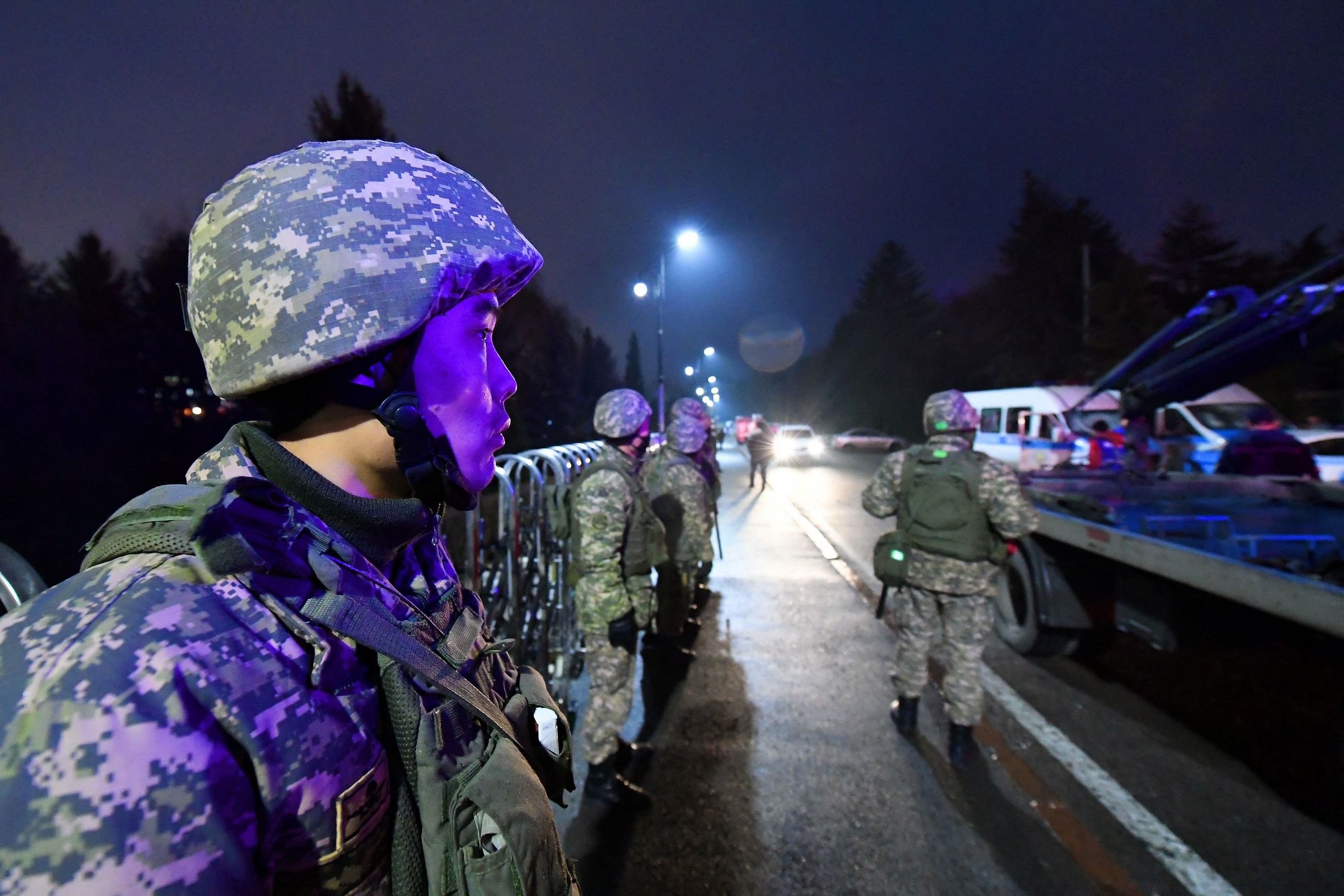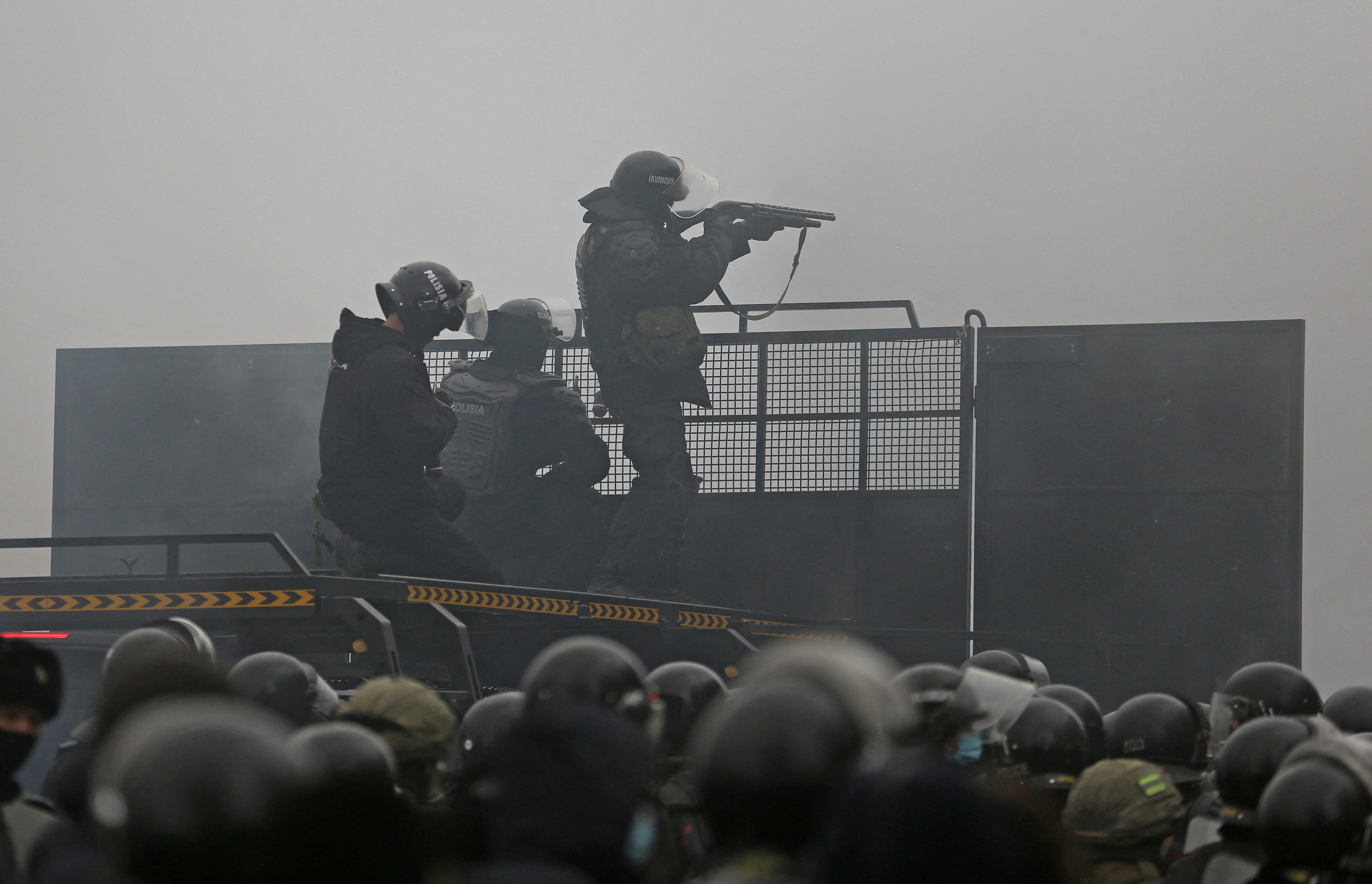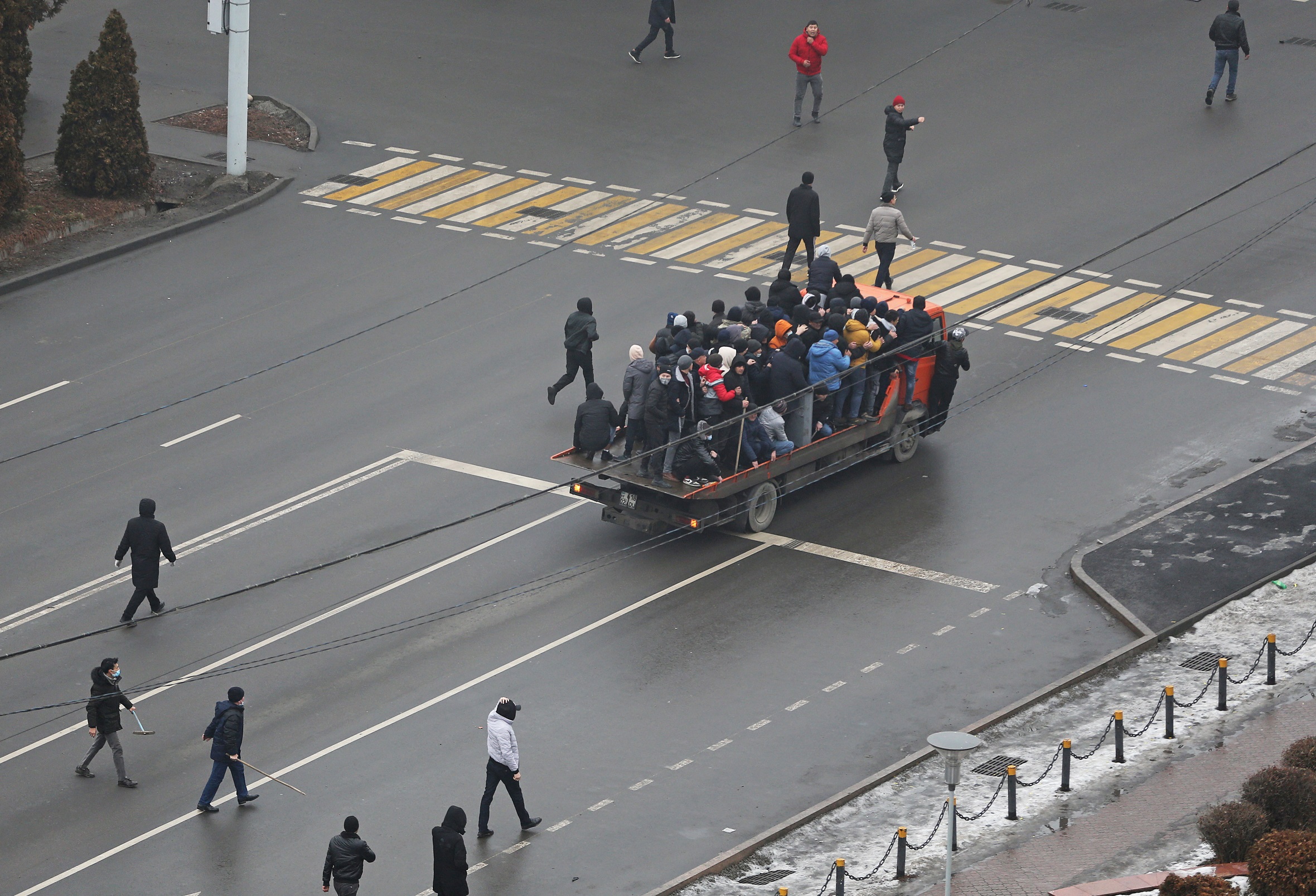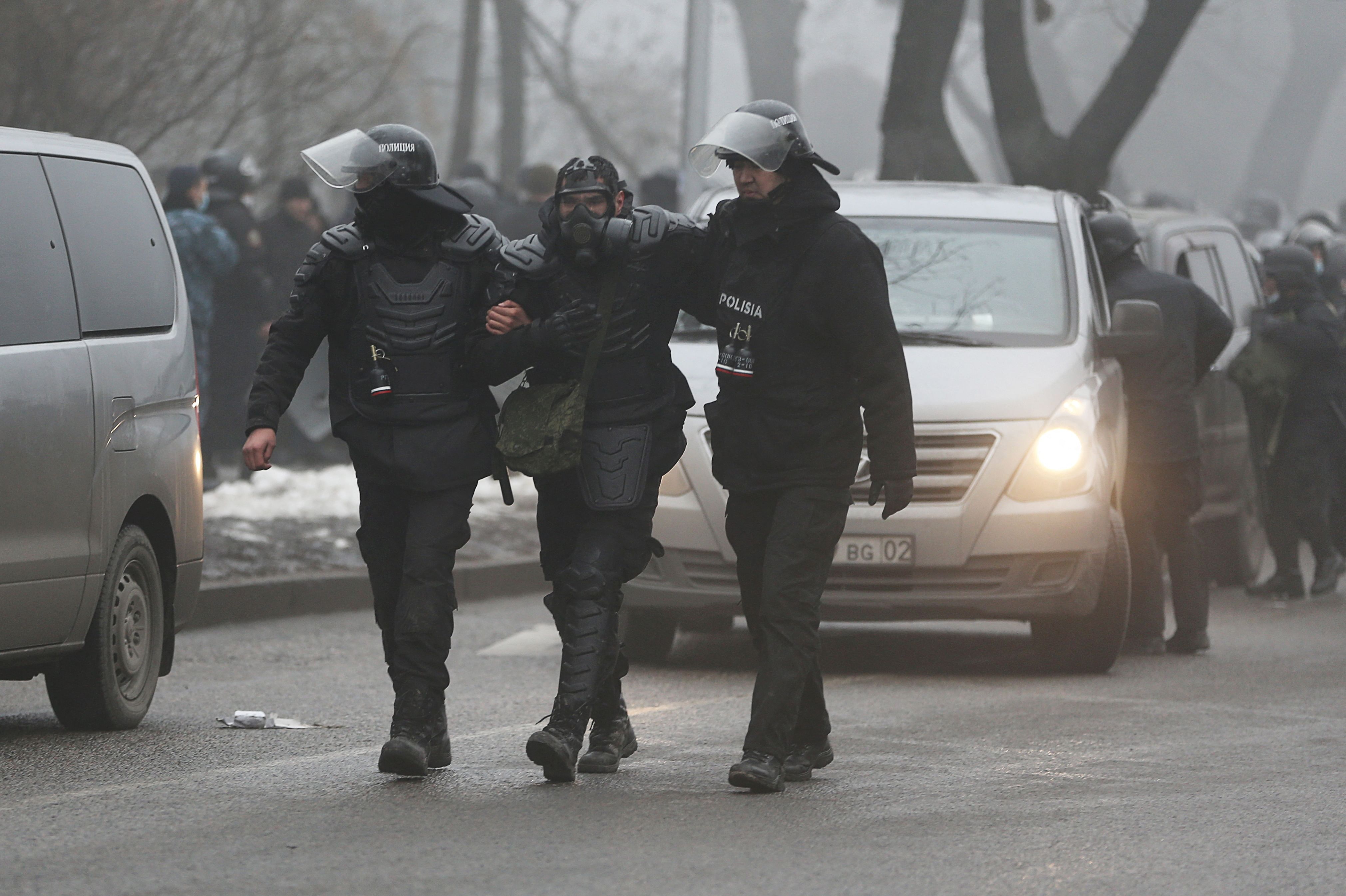Russia-led bloc to send troops to Kazakhstan amid protests
Sign up now: Get ST's newsletters delivered to your inbox
MOSCOW/ALMATY (BLOOMBERG) - Russia and its allies said they would send troops to help Kazakh President Kassym-Jomart Tokayev quell protests after anti-government demonstrators seized official buildings and a major airport in the biggest challenge to the central Asian country’s leadership in decades.
The announcement, made in the early hours Thursday (Jan 6), came after Kazakh authorities imposed a nationwide state of emergency and sent military units to fight what Mr Tokayev called "terrorist bands."
In the country’s largest city and former capital, Almaty, demonstrators had seized the international airport and set fire to the presidential residence and city hall.
Authorities later said the airport had been retaken, Interfax reported.
Citing "threats to the national security and sovereignty" of Kazakhstan caused "in part by intervention from abroad," the six-nation Collective Security Treaty Organisation (CSTO) decided to deploy "peacekeeping forces" for a "limited period with the goal of stabilising and normalising the situation in the country," according to the brief statement posted at 1.20am Moscow time on the Kremlin website.
It didn’t include any details on the size of the deployment or which countries would send troops.
The CSTO is dominated by Russia and also includes Belarus, Armenia, Kazakhstan, Kyrgyzstan and Tajikistan.
The action marks the second major move by the Kremlin in as many years to shore up an ally facing upheaval.
In 2020, President Vladimir Putin stepped in to back Belarusian leader Alexander Lukashenko’s crackdown on popular protests, which drew sanctions from the US and its allies.
The Russian leader now is involved in high-stakes negotiations with the US and Europe over a simmering conflict regarding Ukraine.
In Kazakhstan, the demonstrations started over the weekend in the west of the country over local grievances about rising fuel prices but quickly spread nationwide.
They attracted thousands and brought calls for longtime leader Nursultan Nazarbayev to give up the reins of power.
Mr Nazarbayev, 81, turned over the presidency to Mr Tokayev in 2019 but retains substantial influence in the country’s repressive political system.

In Almaty, both city hall and the president’s residence were ablaze after protesters stormed the buildings Wednesday, Interfax reported.
By late in the evening, authorities said an "anti-terrorist operation" was underway in the city, Tass reported.
"The appeal to the CSTO means that Tokayev has lost control," said Mr Arkady Dubnov, a Moscow-based specialist on central Asia.
Mr Tokayev said several police were killed.
Seeking to defuse the crisis, Mr Tokayev accepted his government’s resignation and removed several top security officials Wednesday. He also said he was taking over as head of the Security Council from Mr Nazarbayev and pledged to stay in the capital "whatever happens."
The state of emergency gives Mr Tokayev the power to impose a curfew, ban protests, and restrict Internet access to quell the rare show of dissent in central Asia’s biggest oil producer.
There was an Internet blackout around the country by Wednesday after a day of mobile Internet disruptions and partial restrictions, according to NetBlocks, a London-based monitoring agency.
Kazakhstan’s benchmark stock index fell 3 per cent in Almaty. The tenge weakened and yields on dollar bonds due in July 2045 rose to the highest since May 2020, according to data compiled by Bloomberg.
The Kremlin has regularly condemned street protests in former Soviet states, labelling them attempts by the West to use "colour revolutions" to overthrow governments.
Russia is facing "strategic instability on both flanks and it can’t afford to get distracted," Mr Alexander Baunov, a senior fellow at the Carnegie Moscow Center, wrote on Facebook.
"Just as Russia was encroaching on Ukraine, suddenly there are protests across Kazakhstan, which might need saving."
State Department spokesman Ned Price called Kazakhstan a "valued partner" and said the US was following the situation closely.
"We condemn the acts of violence and destruction of property and call for restraint by both the authorities and protesters," Mr Price said in a statement Wednesday issued before the CSTO deployment was announced. "We urge all parties to find a peaceful resolution of the state of emergency."

Law enforcement officers stand guard near the mayor's office amid protests triggered by fuel price increases, in Almaty, on Jan 5, 2022.

Kazakh law enforcement officers are seen on a barricade during a protest triggered by fuel price increases in Almaty, on Jan 5, 2022.
PHOTO: REUTERS

Demonstrators ride a truck during a protest triggered by fuel price increases in Almaty, on Jan 5, 2022.
PHOTO: REUTERS

A Kazakh law enforcement officer is assisted during a protest triggered by fuel price increases in Almaty, on Jan 5, 2022.
PHOTO: REUTERS
Like other countries, Kazakhstan has seen inflation soar and its wealth gap widen during the coronavirus pandemic.
Consumer price growth jumped to 8.7 per cent in November, exceeding the central bank’s 6 per cent target.
The country of 19 million people has struggled with price growth and domestic fuel supplies as global energy crunch made exports more appealing.
Kazakhstan produced roughly 1.9 million barrels a day of oil in December.



